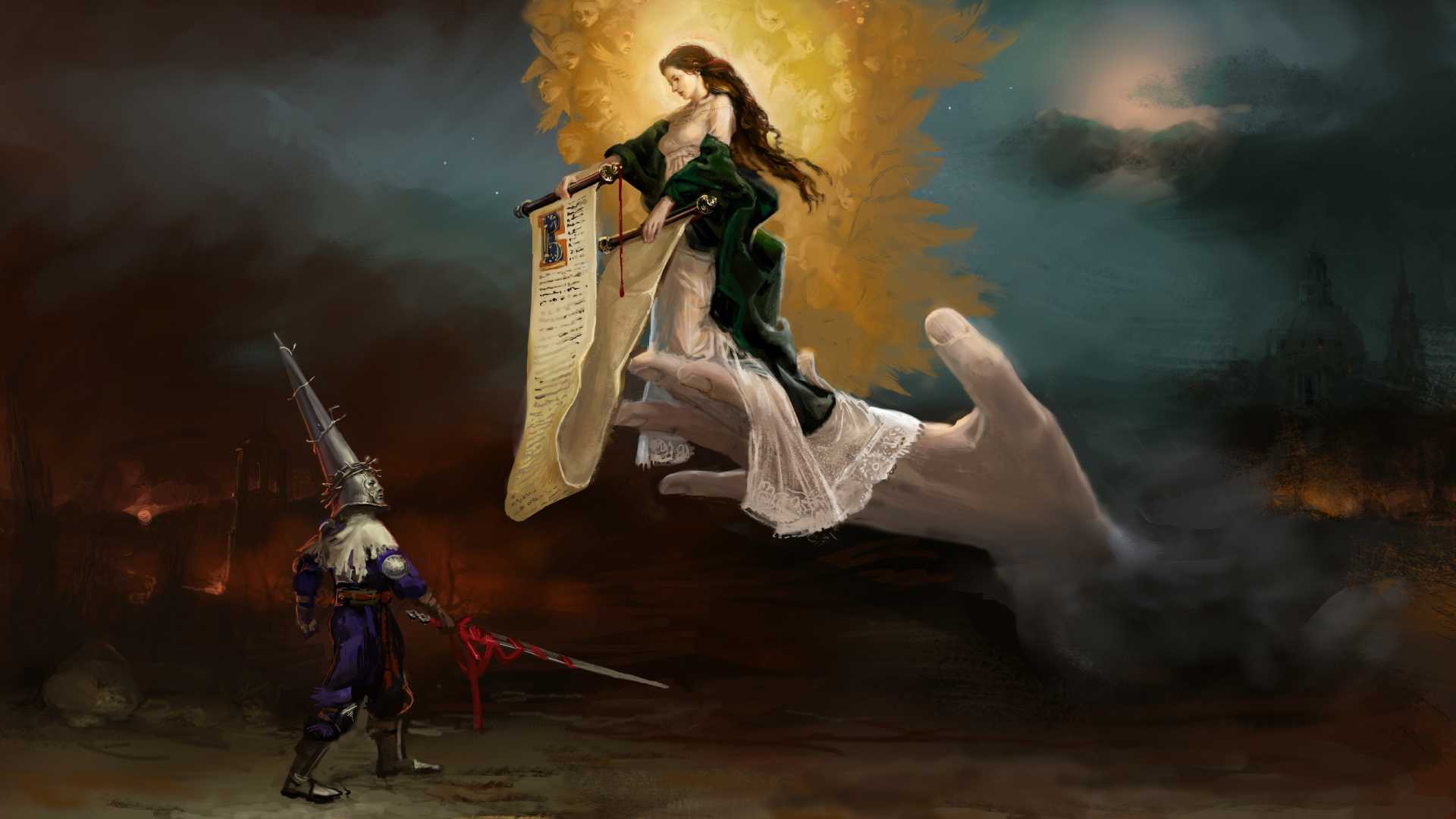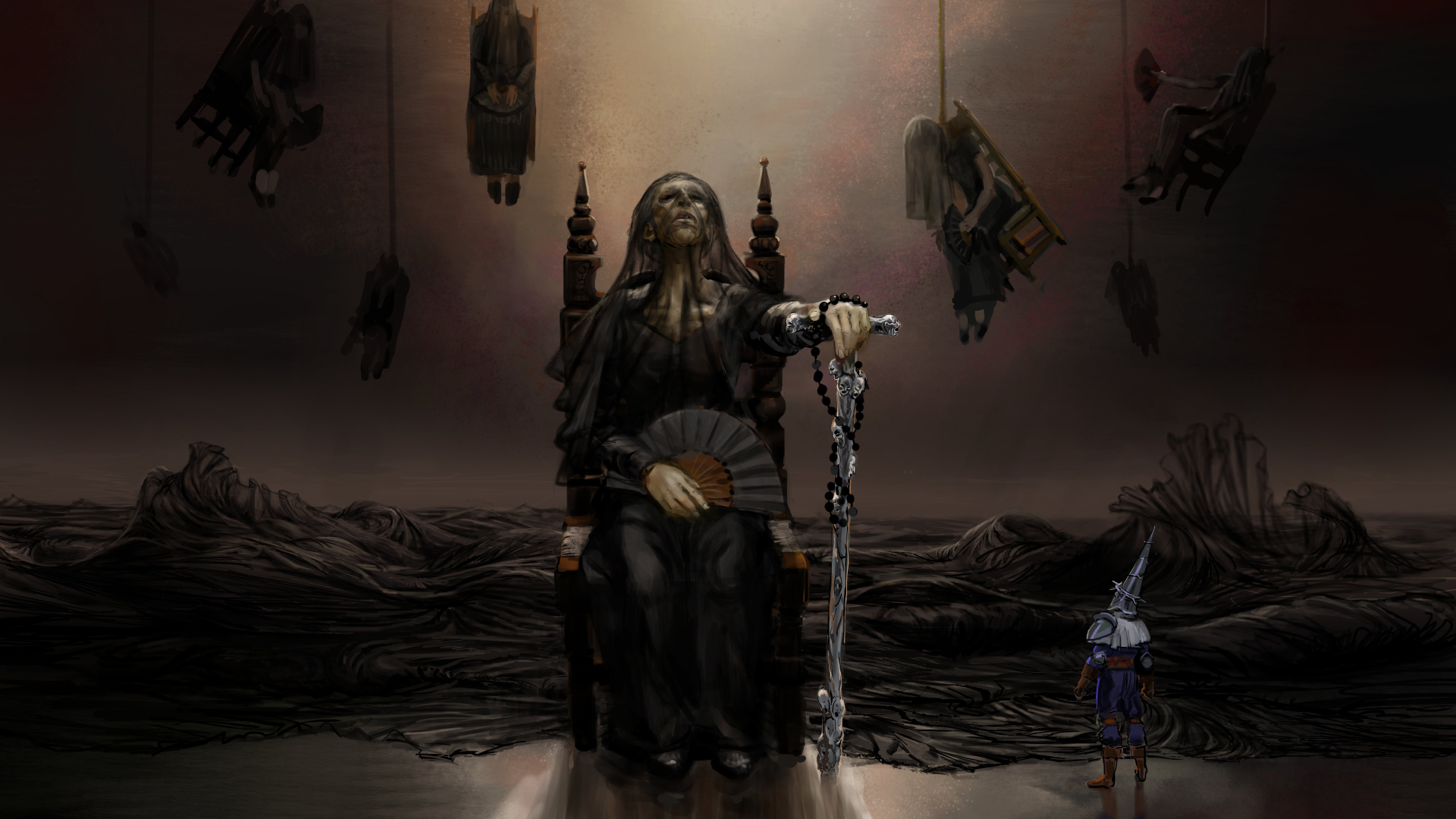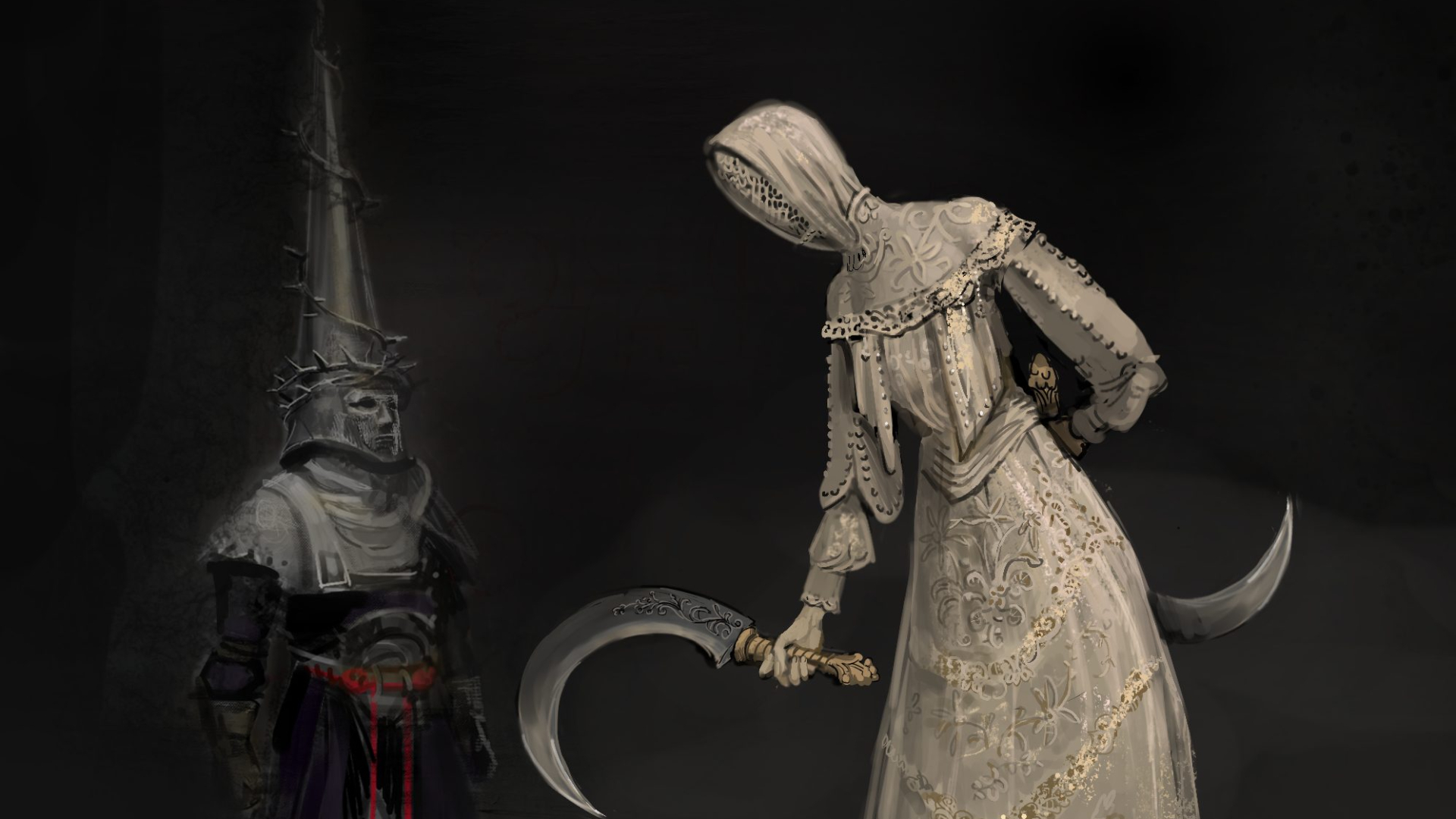
The Penitent One grunts in anguish, slumping to his knees with a guttural cry. He’s just been run through by a spiked wheel of doom, hurled towards him by the game’s first boss – a grim omen of the many, many deaths yet to come.
“For God’s sake,” I mutter to myself, and drop the controller in frustration. This happens a lot.
The time I spent with Blasphemous 2 was packed full of deaths both thrilling and unceremonious as I struggled to keep The Penitent One on the path to righteousness. It’s a Metroidvania – you expect to die, a lot. But for me, this one felt different. As I slowly learned the attack patterns and inched ever closer to defeating him, I felt my frustration align with The Penitent One’s bloody pilgrimage.
The grim, Catholic-inspired style of the game hit me just as hard as its enemies – I may not have been to mass for years at this point, but Catholic guilt never leaves you. Neither does the frustration of defeat as you drag The Penitent One through this ever-grinding trial of repentance. There are some grim, heavy themes here, and the game’s beautiful, pixelated artwork builds on religious-heavy lore to create a grotesque world that’s more like a renaissance artwork from El Greco than a sidescroller.
Thankfully, it’s not just style over substance. Blasphemous 2 is a lot of fun, turning frustration into penance on the road to salvation as The Penitent One grapples with a new evil.
Thy will be done

Blasphemous 2 picks up where the original left off. The Miracle is back, and the prophetic birth of a new miracle child means there’s no rest for The Penitent One.
Fortunately, you don’t have to be a Blasphemous expert to enjoy the sequel. I hadn’t played the first game before I got my hands on this new instalment, but that’s okay. The game’s opening cutscenes and self-contained story lean into the world in a way that takes you off on an entirely new adventure. No prior experience necessary.
What Blasphemous 2 also does is lean hard into the Metroidvania subgenre right from the off. There’s no mistaking what this game is about. You’re going to die, and the game is going to punish you. The cool thing is, you’re probably going to enjoy it.
The first boss comes along very quickly and is one of the first enemies you’ll encounter. This really helps set the tone for players who might not know what to expect. It isn’t going to go easy on you, and your experience with Blasphemous 2 may be a cross you’ll have to bear… but ironically, it isn’t too punishing.
You can kneel before shrines which act as well-designed checkpoints, and much like the first game, your death leaves behind a guilt fragment which can be collected on your next go-around. If you played the original Blasphemous, you’ll know what to expect. This time though, The Penitent One has a few tricks up his sleeve.
Mea Culpa, my child

The Penitent One is back without his tools, and there are three new weapons to play with.
The first is a massive flail – slower and harder hitting, so you need to make damn sure you get the timing of your attacks just right. The second is a pair of much quicker blades. They don’t hit quite so hard, as you might expect, so you need to be on top of your positioning. Handy, since these blades give you much more mobility.
The third is the rosary blade, easy to mistake for the previous game's Mea Culpa.
It’s a balancing act, so I went with the standard blade, but eventually you’ll unlock them all – able to chain combos and modify your weapons to do interesting new things. You’ll get all different kinds of attacks and the weapons themselves even factor into some of the puzzles you’ll have to solve.
It’s a neat way of incorporating the weapons into the world, and it makes Blasphemous 2 a lot more interesting as a result.
Admittedly, I didn’t get too far. An hour is nowhere near long enough to explore this rich, heavy world, and I could have spent hours reading through the item descriptions alone, which drop nuggets of backstory for eagle-eyed players.
To err is human, to forgive divine
All in-all, Blasphemous 2 is a rich tapestry of stunningly grotesque art, a wonderfully dense story, and some excellent retro-style sidescrolling. It’s the kind of game you can get lost in for hours, and you’re going to have to – the bosses are tough and the puzzles devious.
The world itself is non-linear, which leaves plenty of room to explore the gothic landscapes while hacking and slashing your way through grotesque enemies.
But the real charm is in the sense of accomplishment you’ll feel every time you best one of the game’s brutal, and unforgiving bosses. For a game about guilt and penance, there’s plenty of reason to revel in The Penitent One’s sins.







